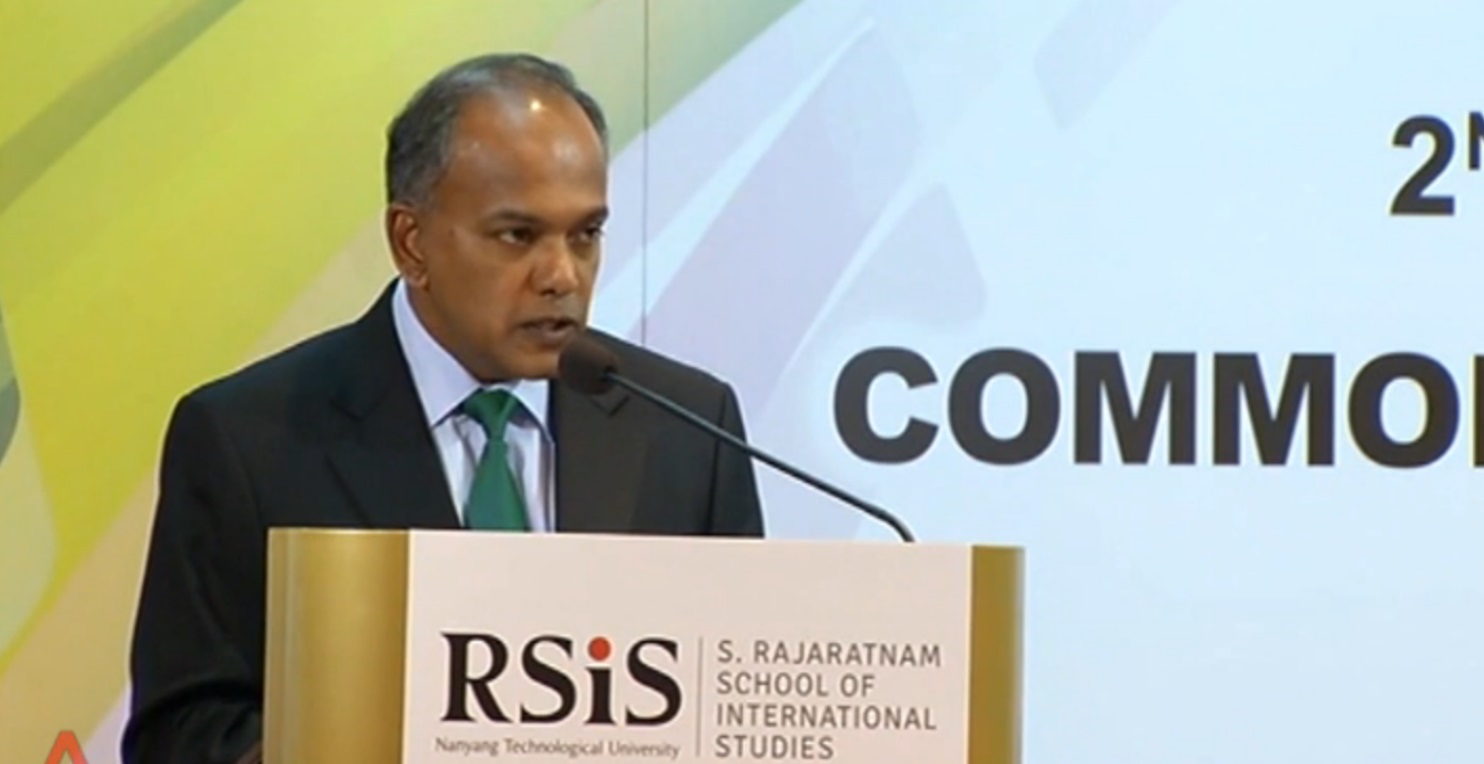Two days ago, Home Affairs and Law Minister K Shanmugam gave a 40-minute speech on religion at a conference about inter-religious relations in societies.
This speech about the very serious threats faced by Singapore now takes on an additional significance following the arrest of 27 Bangladeshi workers under the Internal Security Act. The workers had, according to the Ministry of Home Affairs, become radicalised and were planning armed violence overseas.
His speech was also shared by Prime Minister Lee Hsien Loong last night.
You'>
Posted by Lee Hsien Loong on Wednesday, January 20, 2016
Here are some key points from Minister Shanmugam's address:
Singapore faces four types of interrelated threats in Singapore: 1) threat of a terrorist attack; 2) threat of radicalisation of a part of the Muslim population; 3) Muslim population growing somewhat distant from the rest of our society; and 4) Islamophobia amongst our non-Muslim communities.
1. Threat of a terrorist attack:
i) Extremists have evolved new ways of attacking defenceless people. Hence, a strengthening of Singapore's security forces, intelligence capabilities, and border controls is needed.
ii) Singapore is fairly secure but it wouldn't be difficult for a group to gather just outside Singapore (where security might be less tight) to plot an attack here.
2. Threat of radicalisation of a part of the Muslim population:
i) Some young people have been brainwashed by preachers who glorify violence on the Internet using slick and evocative talk.
ii) Two examples: a) a young poly NS boy went online to search for information on bomb-making and produced a video justifying suicide bombing; b) a self-radicalised boy wanted to go to the Istana during an open house and use a knife to kill the President and the Prime Minister.
3. Threat of the Muslim population growing somewhat more distant from the rest of society
i) There is a sense that Singaporeans are becoming more religious, across more religions. But there is a fine line between practising one's religion and believing that being religious means to be separate from the rest of the citizenry.
ii) The government has noticed that certain sections of younger Muslims have the view that it is wrong to wish Christians "Merry Christmas" or Hindus "Happy Deepavali". Some groups also preached that it is wrong for Muslims to recite the National Pledge, or sing the National Anthem, or serve National Service, as doing so, to them, contradicts the Muslim faith.
iii) Shanmugam said the government will not interfere in doctrinal matters within each religion, but has to step in to protect racial and religious harmony.
4. Threat of Islamophobia
i) Constant news coverage of attacks from all around the world can create a general sense of suspicion of Muslims and Islam as a whole.
ii) Singapore is not immune to intolerance towards Muslims by non-Muslims, and it is difficult to assess how the mental landscape within people is shifting.
iii) Two examples: A Malay woman was walking towards a bus stop when she was approached by a man of another race, who uttered the words "suicide bomber" to her. A week after the Paris attacks, the words "Islam murderers" were found scribbled at a bus-stop in Bukit Panjang and on a toilet seat at Jurong Point Shopping Mall.
iv) It is important that we ensure that Muslims in Singapore enjoy good opportunities, that there is no discrimination in schools, in jobs, in society as a whole.
5. Singapore's response to these threats
- Singapore has pursued policies that bring people from all races and religions together, such as living in the same neighbourhoods, attending the same schools, men carrying out National Service.
- The Singapore Muslim Identity (SMI) initiative, launched by the local Muslim community in 2004, spells out principles and values for living in and contributing to Singapore's multi-cultural and multi-religious society, based on the Quran.
- The Religious Rehabilitation Group (RRG), a broad network of Islamic scholars and religious teachers, who volunteer their services to counsel the JI detainees, and those who have been influenced by terrorist ideologies.
- The Asatizah Recognition Scheme (ARS), a community accreditation initiative, where religious instructions are only provided by qualified teachers.
You can also check out his full speech here.
Top photo from K Shanmugam's Facebook page.
If you like what you read, follow us on Facebook and Twitter to get the latest updates.
